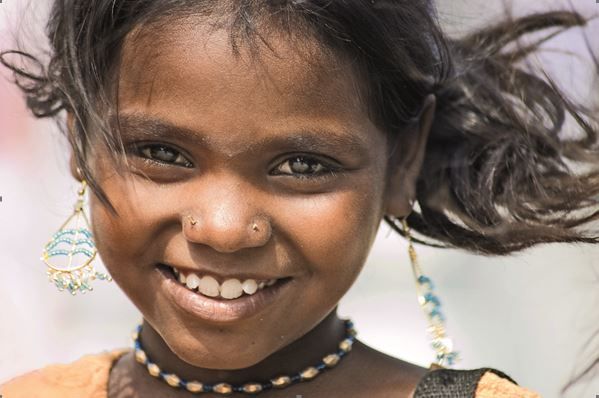Reproductive care for young women
Menstruation is a natural biological process that is often recognised as a transition from adolescence to womanhood. Despite this, millions of girls and women worldwide are denied the right to manage their menstrual cycle in a dignified and healthy way. Particularly in rural areas, especially in poorer and developing countries, the menstrual cycle is often surrounded by social norms, taboos and myths that exclude women from many aspects of socio-cultural life.
What we do
Our project aims to raise awareness of menstrual hygiene in rural areas of India and at the same time take concrete measures to meet the needs of young women. We are committed to ensuring that young women receive adequate knowledge about their bodies and the reproductive system in particular, despite social prohibitions against discussing these topics. In addition, we want to raise awareness of the availability and use of hygienic menstrual products to counteract the culturally influenced attitudes that often lead to the belief that these products are financially unaffordable.
We plan to run awareness campaigns in schools, communities and health facilities to emphasise the importance of menstrual hygiene. We will also partner with local communities and businesses to improve access to affordable menstrual products. Through targeted training and workshops, we aim to raise awareness of healthy menstrual practices and challenge the social norms, taboos and myths that lead to unhygienic practices.
Project goals
- Creating awareness: The main objective of our project is to raise awareness about menstrual hygiene in rural areas of India. This includes education on the biological process, proper handling of menstrual products and the importance of hygienic practices.
- Improve access: We aim to increase access to hygienic menstrual products by partnering with local businesses to provide affordable options. At the same time, we want to ensure that schools and communities have adequate facilities for the disposal of menstrual products.
- Promoting education: Our project aims to involve educational institutions to ensure that girls receive adequate information about their reproductive health. We aim to provide training and workshops to promote knowledge about the menstrual cycle and the importance of hygiene.
- Challenging social norms: We are committed to challenging social norms, taboos and myths that lead to menstrual stigmatisation. This includes promoting open conversations and discussions about menstruation in schools and communities.
- Minimising health impacts: Our aim is to minimise the health impact of inadequate menstrual hygiene. This includes the prevention of infections and other reproductive health problems that can be caused by unhygienic practices
Project partners
The project in India is managed by our local project partner Viswass and monitored by ChildRightNow International.

changing lives!
With your donation you help to give children a life in dignity.
Take a stand with us!
All projetcs


changing lives!
With your donation you help to give children a life in dignity.